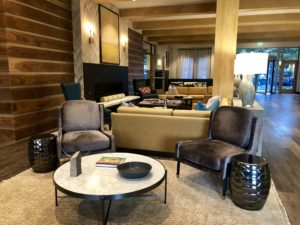Mobile, Alabama, boasts a rich tapestry of history showcased in its historic homes. Explore stunning grand staircases, exquisite antique furnishings, and an abundance of Southern charm that spans over 300 years. Embark on a fascinating journey into the lives of the esteemed Southern elite and their dedicated servants through Mobile, Alabama’s historic mansions and home tours.

Bragg-Mitchell Mansion
The Bragg-Mitchell Mansion, built in 1855, is an iconic Greek Revival-style structure in Mobile, Alabama. Revered for its architectural beauty, this historic landmark has garnered renown as one of the city’s most photographed buildings.
Initially commissioned by Judge John Bragg for his wife’s delight during Mobile’s social season, the mansion boasts extravagant features such as its expansive double parlors, a sweeping circular staircase, and spacious grand rooms that epitomize the pinnacle of Southern social entertaining.
Nestled beneath a majestic canopy of century-old oaks adorned with draping Spanish moss, the mansion witnessed dramatic episodes during the Civil War. In anticipation of potential Union troop invasions, the cannons were strategically positioned on the front lawn to fortify the estate’s defenses.
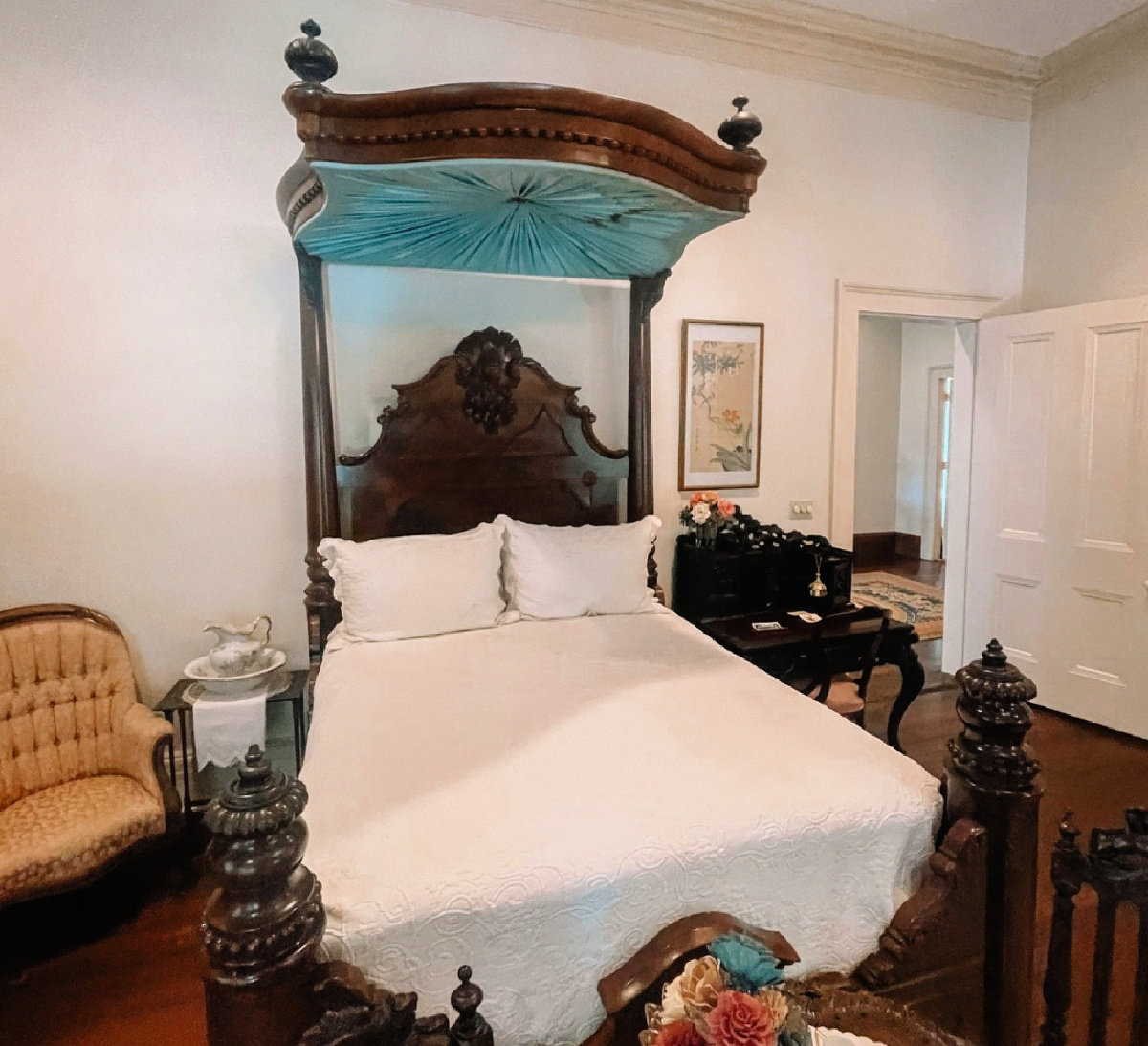
Ironically, despite Judge Bragg’s concerns, the anticipated battleground status of Mobile never materialized. Consequently, the Bragg-Mitchell Mansion emerged unscathed, ultimately solidifying its position as an enduring city symbol.
Regrettably, my time at the Bragg-Mitchell Mansion was cut short due to an early closure for a private event. As luck would have it, the gracious staff, exemplifying Southern hospitality, kindly offered a brief 10-minute tour before the commencement of the private gathering.
Admission is $12. The mansion is handicap accessible on the first and second floors.
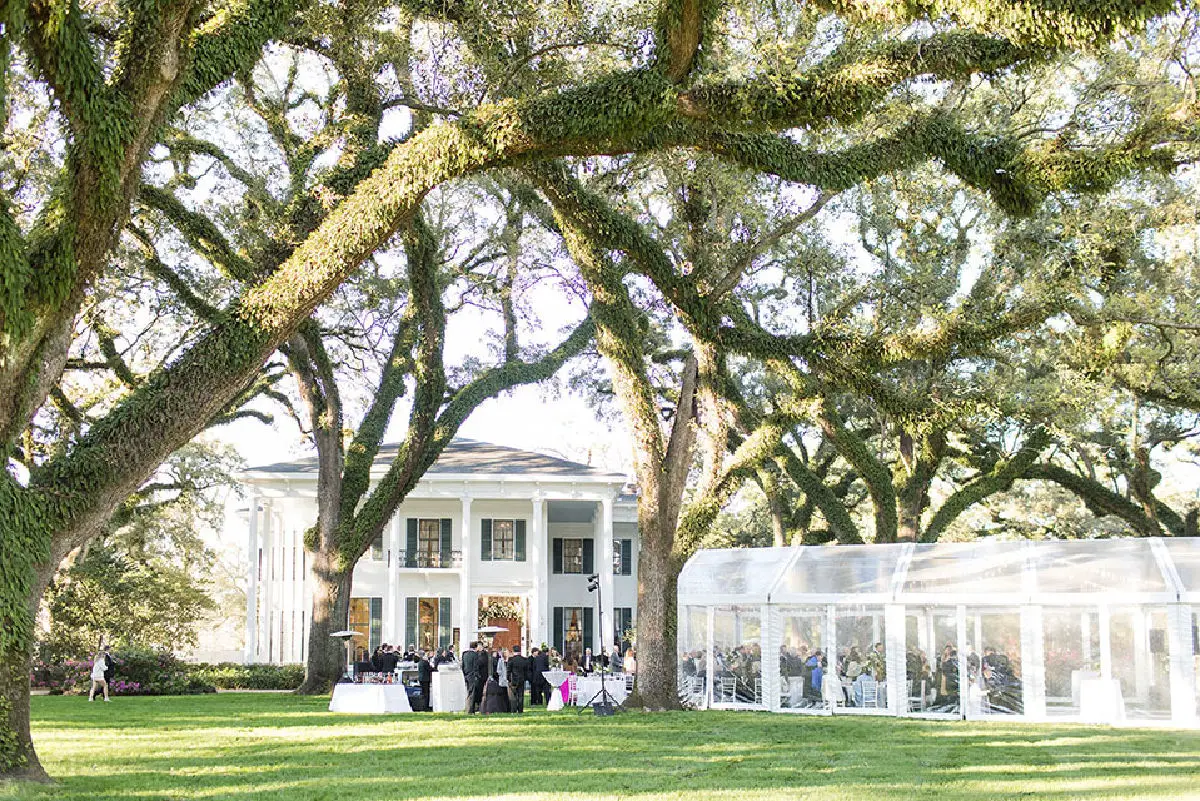
Ghosts on the Grounds
Of course, no historic home is complete without a few ghost stories. A ghostly cat roams this mansion’s grounds. Sound strange? How about a ghost that sneezes? While these hauntings may seem a little silly, the mansion has plenty of other more normal occurrences of supernatural activity: doors opening and closing on their own, the elevator moving of its own accord, disembodied voices, and even the ghost of Judge Bragg himself.
But the real mystery is the woman who can be seen staring out the upstairs window. The story goes that she fell in love with an enslaved person and that she continues to wait for her forbidden love even after death.
Oakleigh House
Constructed in 1833, Oakleigh House, located just minutes from downtown Mobile, is a prime example of historical architecture. Today, it serves as Mobile, Alabama’s premier period house museum, showcasing the lives and experiences of its residents across three centuries and four families.
As visitors explore the house, they journeyed through Mobile’s rich 300-year history, encompassing cotton farming, urban slavery, railroad expansion, the Civil War, and emancipation.
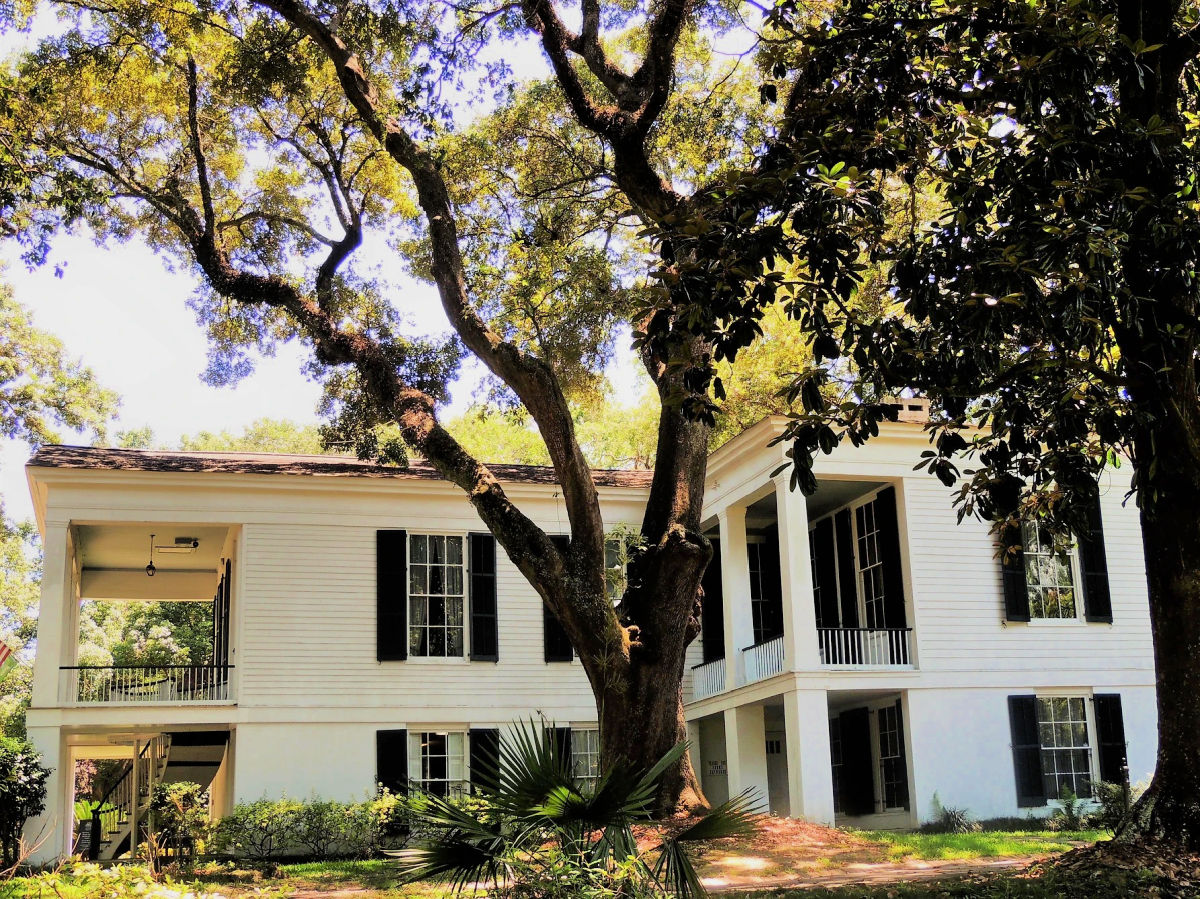
The restoration and maintenance of this Greek Revival home can be credited to the influential figure, Madame Octavia Walton LeVert, whose portrait graces the entry hall. Additionally, one fascinating anecdote shared by the tour guides recounts when future US President James Garfield enjoyed his first authentic Southern mint julep while relaxing on Oakleigh’s front gallery.
While photography is prohibited within the historic house, one fortunate exception our gracious tour guide made allowed me to capture a photo of a distinctive architectural feature known as a “jib window.” This unique element consists of a small door discreetly incorporated into the wall beneath a window, inviting a gentle flow of fresh air from outside when opened.
Immerse yourself in the allure and heritage of Oakleigh House, an extraordinary testament to Mobile’s past.
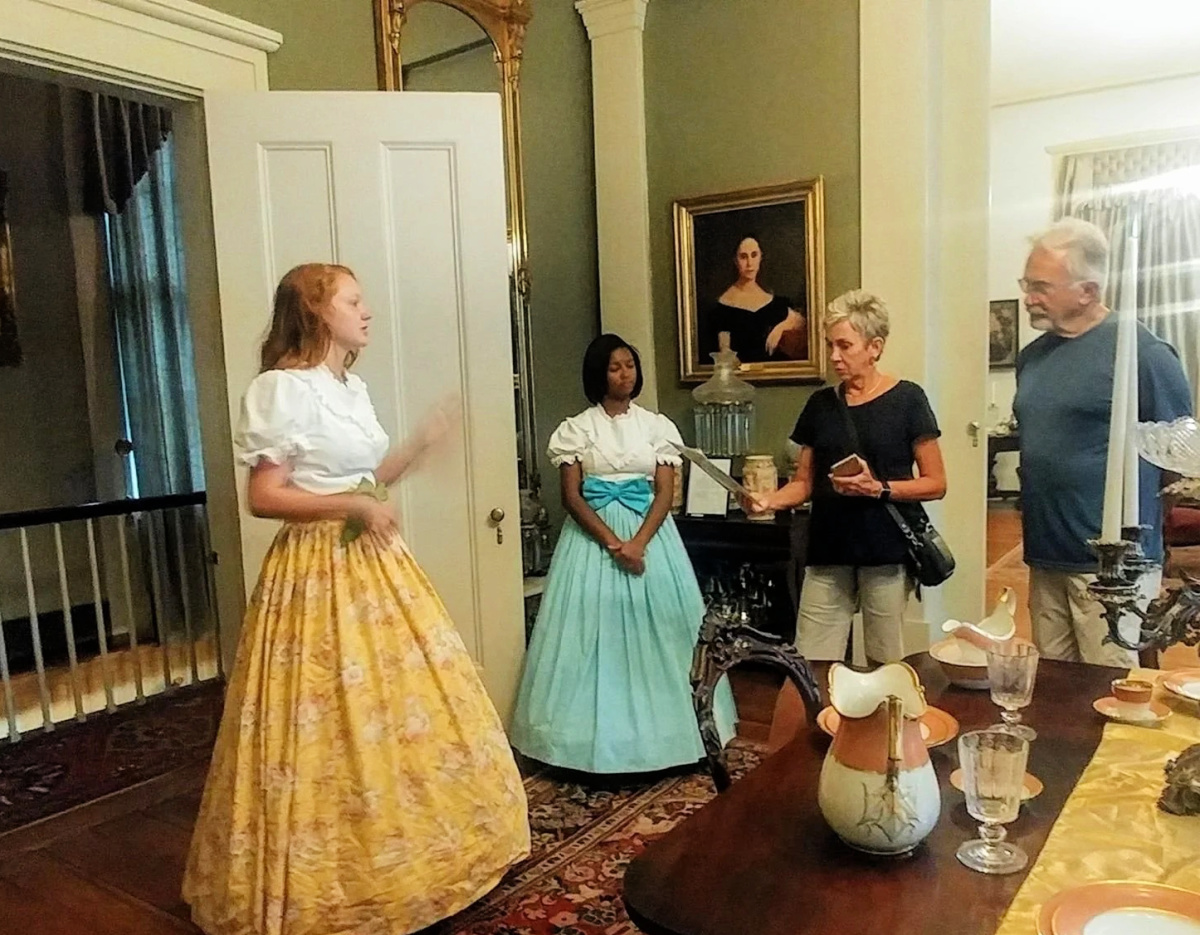
Oakleigh House Grounds and Ghosts
The grounds of Oakleigh House encompass an additional structure known as “Cook’s House.” The “Cook’s House” Project aims to expand Oakleigh’s narrative to include the stories of African-American servants after Emancipation. Initially, it was believed that the detached kitchen at the rear of the house served as a cook’s residence. However, evidence soon revealed that this house was built in 1866 to accommodate married soldiers during Reconstruction.
This section of the museum now presents the Union barracks’ history and the experiences of Oakleigh’s servants. It is a notable landmark on Mobile’s Dora Franklin Finley African-American Heritage Trail.
In addition to its historical significance, Oakleigh House is notorious for its ghost stories. The apparition known as Miss Daisy is said to haunt the premises. Guests have reported hearing the swishing sound of petticoats throughout the rooms or catching glimpses of a white-clad figure vanishing down hallways.
Some have even witnessed a gentleman dressed in a tailcoat meandering the corridors. However, there is no need for alarm upon entering one of the bedrooms, as a mannequin is adorned in black mourning attire on display. She may not be a ghost, but her lifelike appearance can startle unsuspecting visitors (I must confess to having been scared upon my initial encounter).
Richards DAR House Museum
Located in the DeTonti neighborhood, the 1860 Italianate-style Richards DAR House stands as a testament to the dreams of Captain Charles Richards and his wife, Caroline. Currently under the care of the Daughters of the American Revolution (DAR), the house is a captivating period museum.
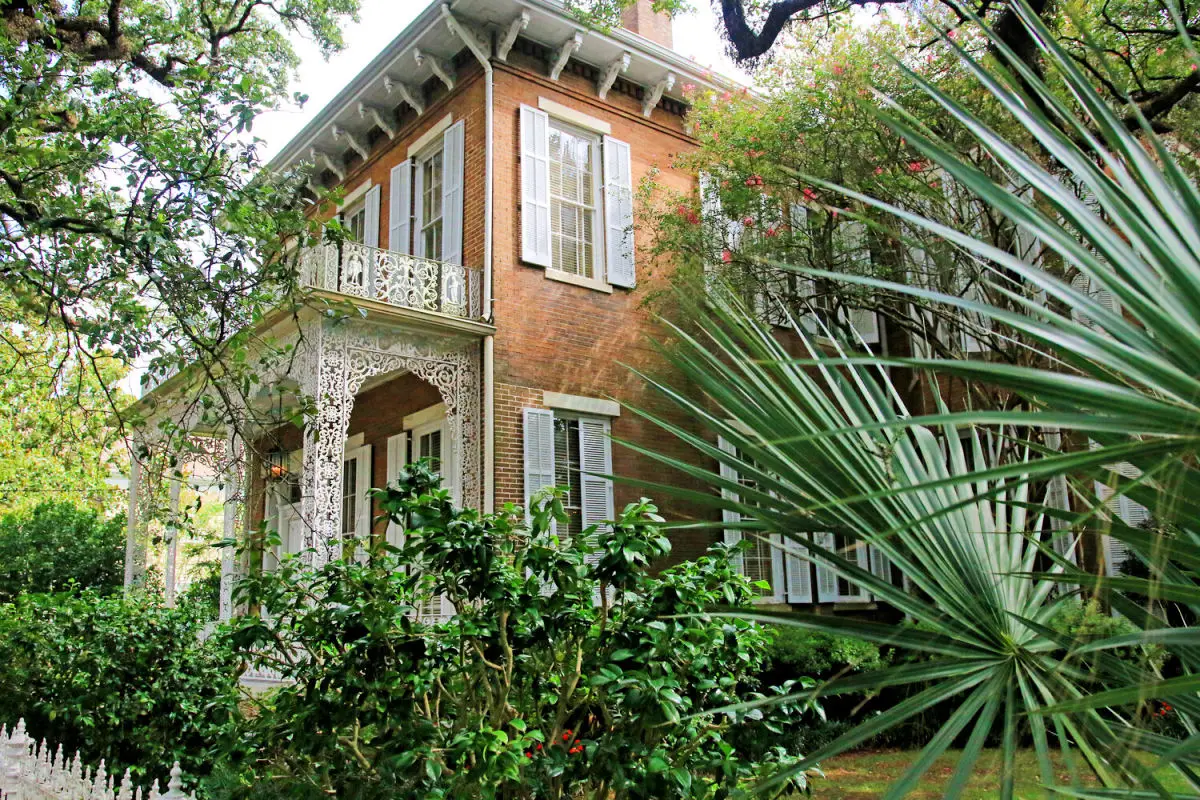
The Richards DAR House Museum offers an intriguing glimpse into the fashionable lifestyle of Mobile’s antebellum era. The Richards DAR House is adorned with ruby Bohemian glass windows, a marble-tiled entrance, a majestic mahogany staircase, and one of the city’s largest chandeliers. Notably, this historic museum creates a unique experience by allowing visitors to interact with the furniture on display, dating back to 1870, which is mostly not original to the property.
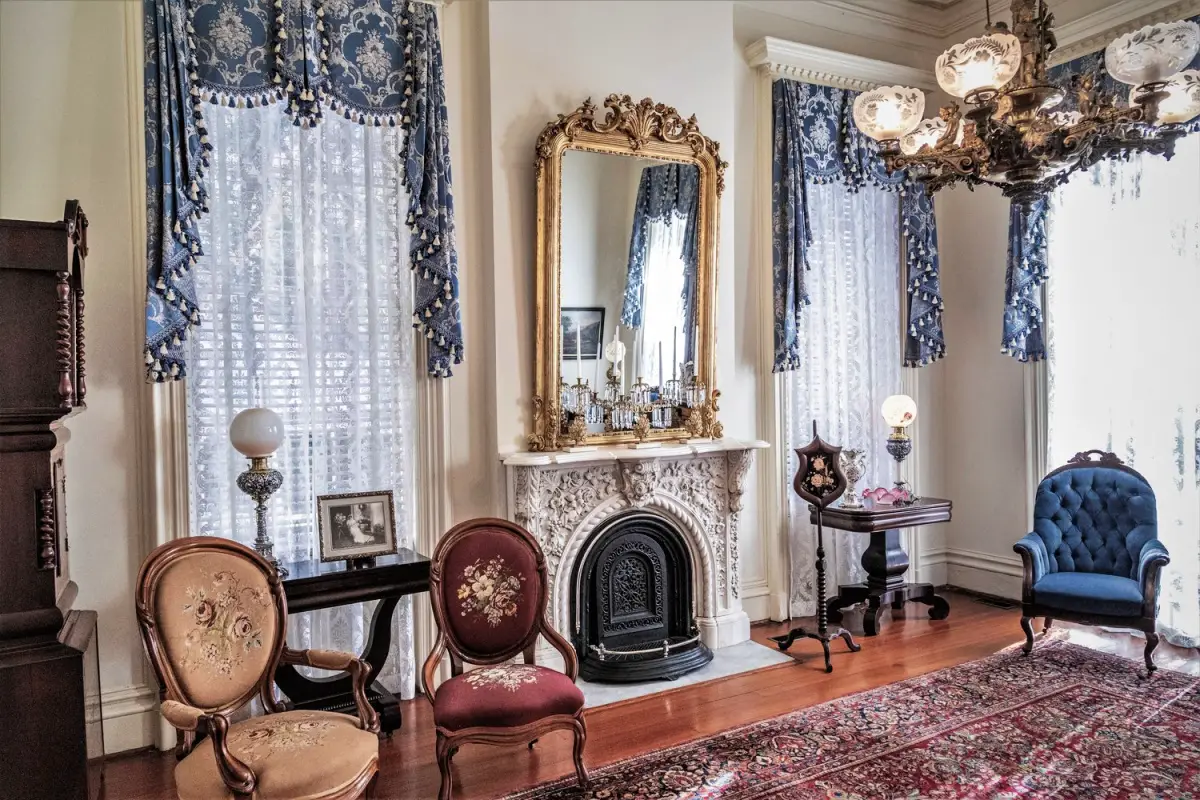
The knowledgeable tour guides take pride in sharing the history of each piece of furniture with visitors. To enhance the experience, the DAR women graciously provide complimentary tea and cookies—a true embodiment of Southern Hospitality.
Even the spirits of the Richards DAR House embrace an early start. As museum docents prepare the house for visitors in the morning, they report hearing peculiar noises, seemingly from the waking spirits within. Perhaps these ghostly inhabitants are unsettled by the disruption of their slumber. Caroline Richards and a host of her 12 children are believed to be among the apparitions that grace this historic home.
A recognizable feminine voice has been reported, occasionally resembling a tone of reprimand towards the children. Within the present confines of a room belonging to a child, paranormal entities are claimed to manipulate various items on the bed, including teddy bears and other toys.
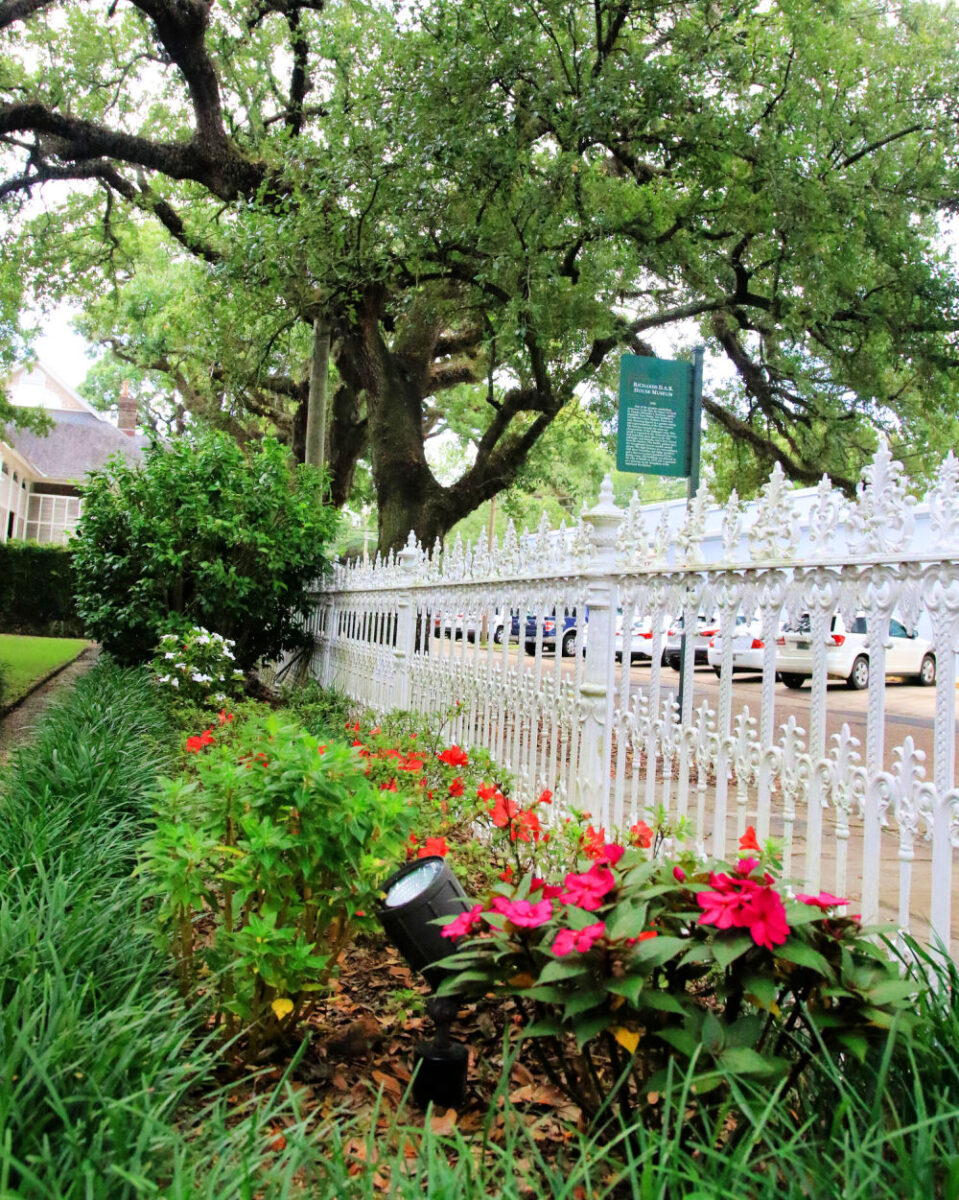
This article was originally written and published by Paige Minds the Gap in 2019. It has been partially updated by staff in 2023.
Pin This Post For Later!
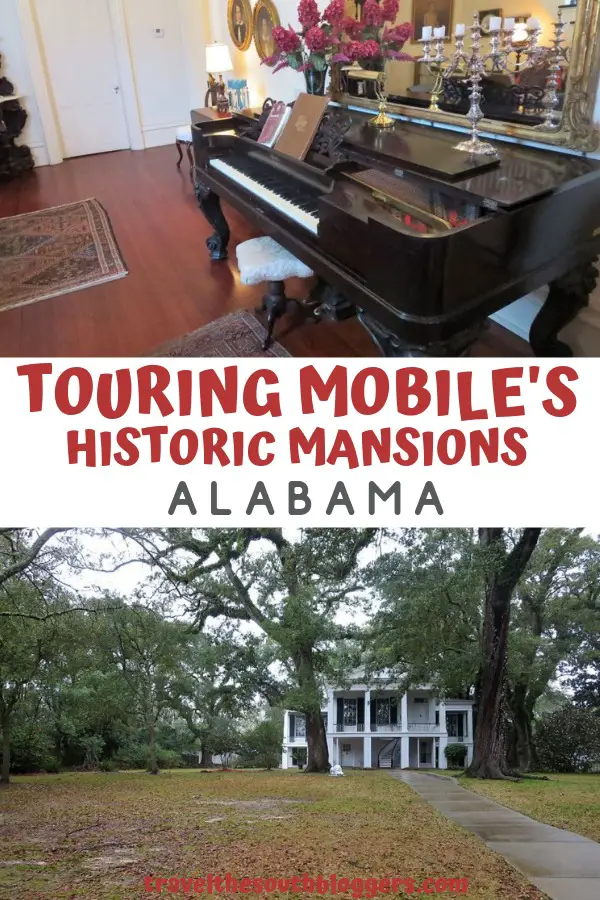
Read more from Paige at:




